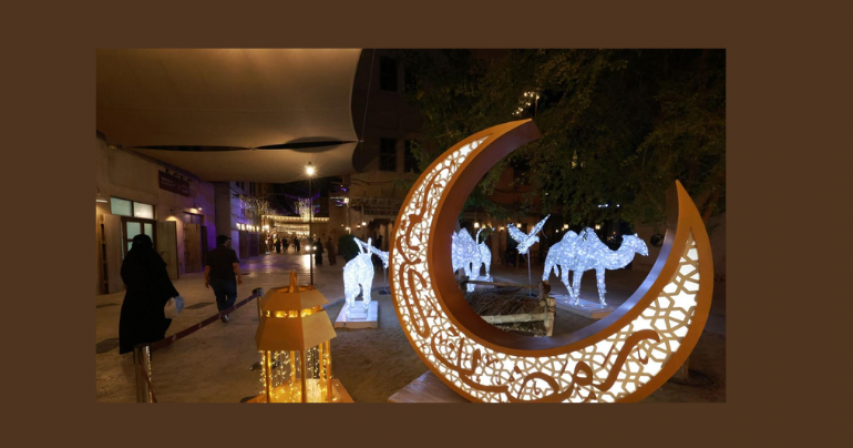Ramadan in UAE: Changes in Daily Life

As the holy month of Ramadan approaches in the United Arab Emirates (UAE), a sense of spirituality and tranquility pervades the atmosphere. From altered work hours to modified school schedules and adjustments in parking regulations, various aspects of daily life undergo changes during this sacred time.
According to the Hijri calendar published by the Dubai Islamic Affairs and Charitable Activities Department (IACAD), Ramadan is set to commence on Tuesday, March 12, 2024. This marks the beginning of a period where greetings of 'Ramadan Mubarak,' signifying a blessed and joyous Ramadan, echo throughout the Emirates.
One notable adjustment during Ramadan is the reduction of work hours for both fasting and non-fasting employees. This change allows individuals to participate in spiritual activities and cultural practices associated with the month. Typically, the UAE government announces shortened working hours for both the public and private sectors. While certain professions may require longer hours, most employees in the private sector benefit from a two-hour reduction in their workday. Moreover, government offices often close earlier, with public sector employees working for six hours instead of the usual eight.
Similarly, academic institutions adapt their schedules during Ramadan. Usually, school days are shortened to five hours per day. However, this year, many schools will be closed during the initial three weeks of the holy month. This closure aligns with either the spring break or the end-of-term break, providing students and staff with time for rest and reflection.
Parking regulations also undergo adjustments during Ramadan, although specific details are typically announced closer to the start of the month. Last year, Dubai implemented parking fees from 8 am to 6 pm, and again from 8 pm to midnight, Monday to Saturday. This arrangement allowed residents two hours of free parking on weekdays. Similarly, in Sharjah, parking fees were applicable from 8 am to midnight, Saturday to Thursday.
Regarding dining establishments, most restaurants and cafes in Dubai operate as usual during Ramadan. While there is no obligation for non-Muslims to refrain from eating or drinking in public during daylight hours, some individuals may choose to do so out of respect for those observing the fast.
Iftar, the meal that breaks the day's fast after the Maghrib call to prayer, holds significant importance during Ramadan. It serves as a time for family and friends to come together and enjoy a special meal. Many hotels and restaurants in Dubai offer lavish feasts and specialized Iftar menus to commemorate the occasion. Additionally, numerous dining establishments provide enticing offers and discounts for Iftar meals, enhancing the communal spirit of the month.
With reduced and flexible work hours, fasting Muslims have the opportunity to attend mosques for prayers, particularly the Taraweeh prayers offered after the Isha prayer. Mosques typically experience increased attendance during Ramadan, with congregants coming together to engage in acts of worship and reflection.
In essence, Ramadan in the UAE is a time of spiritual renewal and communal harmony, where adjustments in daily routines foster an environment of reverence and contemplation. Through modified work schedules, educational arrangements, and societal customs, the Emirates embrace the essence of this sacred month, embodying the values of compassion, generosity, and unity.
By: Sahiba Suri





Comments